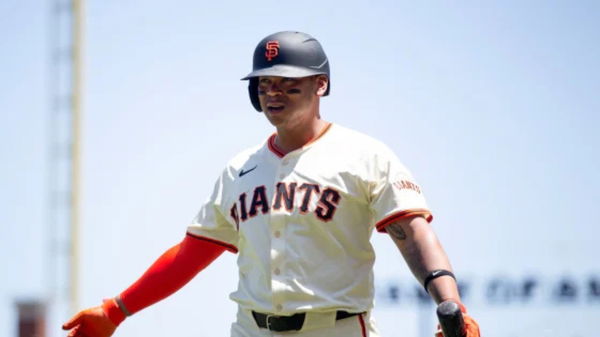
via Imago
Credit: D. Ross Cameron / Imagn Images

via Imago
Credit: D. Ross Cameron / Imagn Images
The Red Sox handed Rafael Devers a massive $313.5 million deal before the 2023 season. They hoped he’d be the cornerstone who carried them from their last World Series title to the next one. Instead, the relationship between Devers and the front office soured so badly that Boston shipped him to San Francisco this past June. The trade has quickly become one of the hottest debated moves in recent MLB history, but so far, it looks like the Red Sox are the ones coming out ahead.
That was enough for a former Boston champion to throw in a jab at Devers on Wednesday.
On the Foul Territory podcast, former Red Sox first baseman and current TV analyst Kevin Millar didn’t hold back. He said Boston is actually better off without Devers, pointing out the irony that while Devers flat-out refused to play first base for the Red Sox, he’s now taking the position regularly for the Giants. But while that is already known, Millar also shared the probable reasons that brought changes to Devers.
ADVERTISEMENT
Article continues below this ad
“Bro. I paid you 305 million bucks. I want to play some third base, I want, I want to play some first base… You’re a ballplayer, bro. I just need you. I need you to play third for us right now… It’s on me… See, I love Rafies, a nice kid, but something happened, something happened. It wasn’t like that before I signed that deal. So I always say money and fame. Change dudes right, go back to you.” Millar went no-holds-barred.
"I always say, money and fame changes dudes."
Kevin Millar says something changed with Rafael Devers after he signed an extension with the Red Sox. 😬 pic.twitter.com/wVmPH6uvId
— Foul Territory (@FoulTerritoryTV) August 27, 2025
Well, the whole clash between the Red Sox and Devers really began when he was shifted from third base to DH after Alex Bregman came in. Devers did fine as a designated hitter, but when Triston Casas went down with an injury, the team asked him to slide over to first base. And that’s when things blew up.
Now, Millar’s take is that if Boston was willing to commit 13 years and over $300 million to Devers, then it wasn’t unreasonable to expect some flexibility when the team needed it. But from Devers’ perspective, that massive contract probably reinforced the idea that he was locked in as the franchise’s third baseman, the face of the infield, rather than a guy who’d be bounced around to fill holes.
Contrasting results for Devers and Red Sox post their seperation
Fans were eager to know how both will fare post their divorce, and here’s the result.
ADVERTISEMENT
Article continues below this ad
What’s your perspective on:
Did the Red Sox dodge a bullet by trading Devers, or did they lose a franchise player?
Have an interesting take?
Right after the trade in mid-June, the Red Sox looked like they were in trouble. Reportedly, they went 3-6 on their West Coast trip, dropped five straight, and saw their run differential swing from +22 to -15. Moreover, the offense completely stalled, going from nearly five runs a game to just over three, with some of the worst OPS and strikeout numbers in the league. Hence, it was certain that the Red Sox were missing Rafael Devers.
But it didn’t take long for things to turn around.
Top Stories
By the All-Star break, Boston had their fire back. They were going 16-9 and riding an impressive 10-game winning streak. And since the Devers deal, the Sox have actually been scoring more, averaging 5.5 runs per game. That mix of a deeper, more balanced lineup has transformed them from a borderline contender into a real wild-card threat.
ADVERTISEMENT
Article continues below this ad
Meanwhile, things haven’t gone nearly as smoothly for Rafael Devers in San Francisco. For the unversed, in 60 games with the Giants, he’s hitting just .240 with a .347 OBP. The walks and power are still there, 12 home runs so far, but that batting average is a big step back from what he delivered in Boston (.272).
Hence, the Red Sox might not be the losing name here.
ADVERTISEMENT
ADVERTISEMENT
ADVERTISEMENT
ADVERTISEMENT



Did the Red Sox dodge a bullet by trading Devers, or did they lose a franchise player?